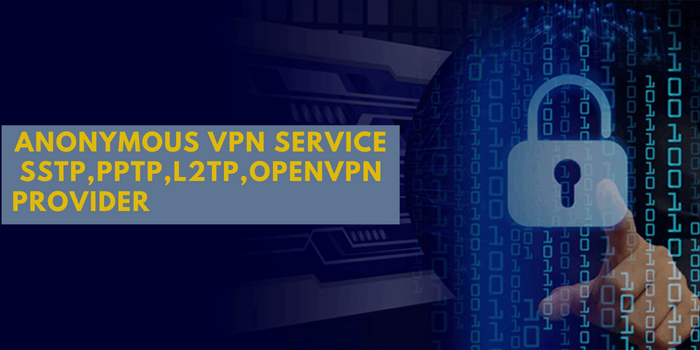When it comes to securing your online activities and maintaining anonymity, an anonymous VPN service is the way to go. With protocols like SSTP, PPTP, L2TP, and OpenVPN.
Whether you need high-level encryption or more flexibility, these protocols have you covered. By choosing an anonymous VPN service, you can enjoy a secure browsing experience, access restricted content, and ensure your online privacy.
Is SSTP More Secure Than L2TP?
When comparing the security of VPN protocols, it’s essential to consider various factors.
While both SSTP (Secure Socket Tunneling Protocol) and L2TP (Layer 2 Tunneling Protocol). Popular options offered by anonymous VPN service providers, they have distinct characteristics.
SSTP is known for its robust encryption and ability to bypass firewalls, making it a secure choice for protecting your online activities.
On the other hand, L2TP relies on the IPsec protocol for encryption, which may have some vulnerabilities.
It’s important to note that combining L2TP with IPsec can enhance its security. Ultimately, the choice between SSTP and L2TP depends on your specific needs and the level of security you require.
If you’re facing a connectivity Fix NordVPN Keeps Disconnecting Issue, it’s advisable to consult the VPNBlade support team for assistance in resolving the problem and ensuring a secure VPN connection.
Does NordVPN Use L2TP?
NordVPN, a well-known VPN service provider, offers a variety of VPN protocols to ensure secure connections.
While it provides support for various protocols like OpenVPN, IKEv2, and WireGuard, NordVPN does not currently offer L2TP (Layer 2 Tunneling Protocol) as one of its available protocols.
However, NordVPN focuses on providing strong encryption and advanced security features through other protocols.
For users interested in L2TP, it’s recommended to explore other VPN providers that offer L2TP as one of their supported protocols. It’s important to choose a VPN service that aligns with your specific needs and security preferences.
What Type Of VPN Is OpenVPN?
OpenVPN is a popular and widely used VPN protocol that offers various types and configurations to suit different needs. Here are five types of VPN configurations that can be implemented using OpenVPN:
1. Site-to-Site VPN: This configuration allows multiple remote networks to securely connect with each other over the internet, creating a virtual private network between different physical locations.
2. Remote Access VPN: With this configuration, individual users can connect securely to a private network from a remote location. Enabling them to access resources and services as if they were directly connected to the network.
3. Client-to-Site VPN: This configuration allows individual users or clients to securely connect to a private network, typically for accessing resources or services hosted on the network.
4. Point-to-Point VPN: In this configuration, two devices or networks establish a secure, encrypted connection directly with each other, creating a private tunnel through which data can be transmitted securely.
5. Road Warrior VPN: This type of configuration is specifically designed for users who are frequently on the move and need to securely connect to a private network from various locations. It enables secure access to resources and services while maintaining user privacy and data integrity.
OpenVPN is a versatile and highly secure VPN protocol that can be configured to suit a wide range of VPN needs. VPN service providers often offer OpenVPN as one of the supported protocols due to its strong security features and flexibility.
Is L2TP Better Than OpenVPN?
The comparison between L2TP (Layer 2 Tunneling Protocol) and OpenVPN depends on various factors and individual preferences. L2TP is known for its simplicity and compatibility with a wide range of devices and operating systems.
It offers built-in support on most platforms and can provide adequate security when used with strong encryption.
On the other hand, OpenVPN is highly regarded for its robust security, flexibility, and advanced features. It uses SSL/TLS encryption and offers excellent protection against various types of attacks.
OpenVPN is also known for its ability to bypass firewalls and its support for multiple protocols and authentication methods.
Ultimately, the choice between L2TP and OpenVPN comes down to specific requirements, security needs, and compatibility with the VPN service provider.
Is Openvpn A Free VPN?
OpenVPN is an open-source VPN protocol that provides a secure and private connection over the Internet. It is widely regarded as one of the most reliable and versatile VPN protocols available.
OpenVPN is known for its robust security features, including strong encryption algorithms and authentication methods. Which ensures that your online activities and data remain protected from unauthorized access.
While OpenVPN itself is a free and open-source protocol, it is important to note that using OpenVPN does not necessarily mean you have access to a free VPN service.
OpenVPN can be implemented by VPN service providers, to offer their own VPN services to users. These providers often charge a subscription fee for access to their VPN network and services.
The use of OpenVPN in VPN services ensures that your internet traffic is encrypted and routed through secure VPN servers, protecting your online privacy and allowing you to bypass geographical restrictions.
While there are free VPN services available, it’s important to note that they may come with limitations, such as restricted bandwidth, limited server locations, and slower connection speeds.
These limitations are in place to encourage users to upgrade to premium plans. However, when it comes to protecting your online privacy and security, it is often worth investing in a reliable and reputable VPN service, which offers a range of subscription plans tailored to meet different user needs.
Does OpenVPN Use L2TP Or PPTP?
OpenVPN is a standalone VPN protocol and does not use L2TP or PPTP. L2TP (Layer 2 Tunneling Protocol) and PPTP (Point-to-Point Tunneling Protocol) are separate VPN protocols that have their own implementations and configurations.
OpenVPN, on the other hand, is an open-source VPN protocol that uses SSL/TLS (Secure Sockets Layer/Transport Layer Security) for encryption. It is known for its strong security, flexibility, and compatibility across different platforms.
While some VPN providers may support multiple protocols, including L2TP, PPTP, and OpenVPN, OpenVPN itself does not incorporate L2TP or PPTP. It offers its own set of features and advantages that make it a popular choice for secure and private online connections.
Is OpenVPN A Firewall?
OpenVPN is not a firewall in itself. It is a VPN (Virtual Private Network) protocol that provides secure and private communication over the Internet.
A firewall is a network security device that monitors and controls incoming and outgoing network traffic based on predefined security rules. OpenVPN, on the other hand, focuses on constructing a secure tunnel between the client and server to encrypt data and protect anonymity.
However, OpenVPN can be used in conjunction with a firewall to enhance network security. The firewall can be configured to allow or block specific OpenVPN traffic based on certain rules and policies.
This combination of OpenVPN and a firewall can provide a robust and secure network infrastructure. Many VPN service providers offer OpenVPN as one of the available protocols for users to connect to their VPN servers and establish secure connections.
Conclusion
In conclusion, when it comes to choosing an anonymous VPN service provider, options like SSTP, PPTP, L2TP, and OpenVPN are available.
These protocols offer different levels of security and functionality. It’s important to consider factors such as encryption, compatibility, and performance when selecting a VPN provider.
The VPNBlade is a reliable platform that offers a wide range of VPN services, including these protocols, allowing users to choose the one that best suits their needs for secure and private internet browsing.
I’m David Watson, an ardent tech enthusiast, and VPN content writer. I’m here to present you with cutting-edge VPN technologies that will safeguard your online privacy. Trust me to deliver outstanding VPN recommendations that meet your needs.



